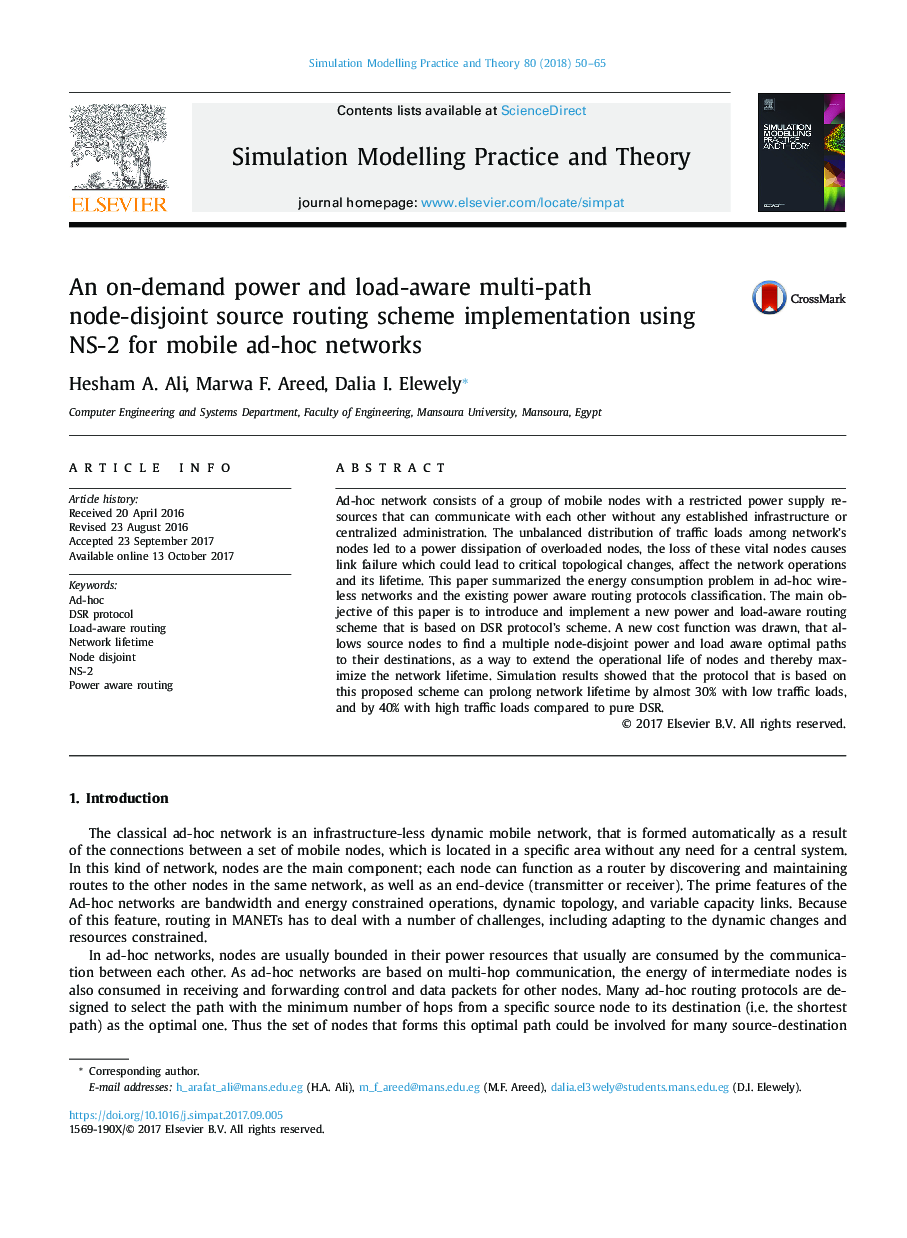| Article ID | Journal | Published Year | Pages | File Type |
|---|---|---|---|---|
| 4962607 | Simulation Modelling Practice and Theory | 2018 | 16 Pages |
Ad-hoc network consists of a group of mobile nodes with a restricted power supply resources that can communicate with each other without any established infrastructure or centralized administration. The unbalanced distribution of traffic loads among network's nodes led to a power dissipation of overloaded nodes, the loss of these vital nodes causes link failure which could lead to critical topological changes, affect the network operations and its lifetime. This paper summarized the energy consumption problem in ad-hoc wireless networks and the existing power aware routing protocols classification. The main objective of this paper is to introduce and implement a new power and load-aware routing scheme that is based on DSR protocol's scheme. A new cost function was drawn, that allows source nodes to find a multiple node-disjoint power and load aware optimal paths to their destinations, as a way to extend the operational life of nodes and thereby maximize the network lifetime. Simulation results showed that the protocol that is based on this proposed scheme can prolong network lifetime by almost 30% with low traffic loads, and by 40% with high traffic loads compared to pure DSR.
